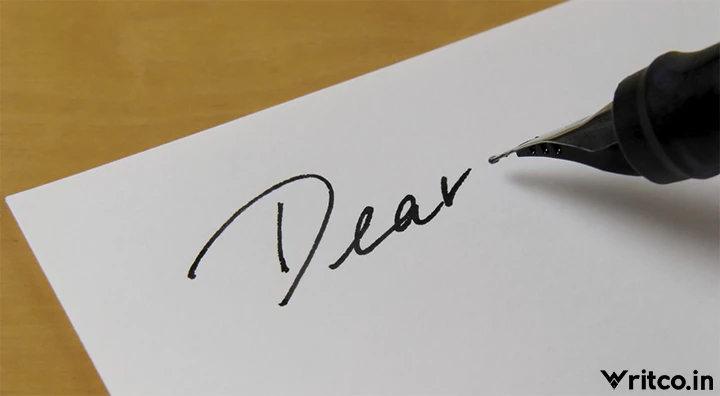El Reloj de Arena / The Hourglass
El Reloj de Arena (Spanish version)
En el antiguo Egipto, donde los dioses tejían el destino de los mortales con hilos de oro y arena, existía un reloj de arena que trascendía lo terrenal. Este reloj, tallado en alabastro y adornado con jeroglíficos sagrados, no medía meramente el tiempo, sino también los latidos del corazón y los suspiros de los amantes.
Faraón Amunhotep, gobernante de vastas tierras bañadas por el Nilo, era un hombre de poder y deberes inquebrantables. Sin embargo, en las sombras de su palacio, compartía un secreto prohibido con Nefertari, una esclava de ojos oscuros y piel de ébano. Sus encuentros eran breves, robados a la implacable marcha de las arenas del reloj.
Cada noche, cuando la luna se alzaba sobre las pirámides, Faraón y Nefertari se encontraban en un rincón oculto del jardín. Allí, bajo las ramas de un sicomoro ancestral, sus manos se entrelazaban, y sus labios se buscaban en un beso que desafiaba la eternidad. El reloj de arena, testigo silencioso, vertía su arena dorada sin piedad.
“¿Cuánto tiempo nos queda?”, susurraba Nefertari, temiendo que el destino los separara. Pero Faraón, con ojos de fuego, respondía: “El tiempo es solo un velo, mi amada. Nuestro amor trasciende las eras y las estrellas”.
Los días pasaban como gotas de agua en el desierto. Faraón y Nefertari compartían risas, secretos y promesas bajo la luz de las constelaciones. El reloj de arena, implacable, marcaba su danza inexorable. Cada grano de arena era un latido, un suspiro, un anhelo.
Un día, mientras el sol se hundía tras las dunas, Faraón Amunhotep presentó a Nefertari un collar de lapislázuli y oro. “Este collar es nuestro lazo eterno”, dijo. “Cuando el último grano de arena caiga, nos encontraremos en el más allá”.
Nefertari asintió, con lágrimas en los ojos. “Prométeme que no olvidarás nuestro amor”, susurró. Faraón selló su promesa con un beso, y el reloj de arena continuó su implacable descenso.
Una noche, cuando la luna estaba en su cenit, Nefertari no llegó al jardín. Faraón esperó, desesperado, pero ella nunca apareció. El reloj de arena, ahora casi vacío, parecía burlarse de su dolor.
Faraón murió con el nombre de Nefertari en los labios. Pero en el más allá, en el reino de Osiris, encontró a su amada. Ella llevaba el collar de lapislázuli, y sus ojos brillaban como estrellas.
“Nuestro amor trascendió el tiempo”, dijo Nefertari, y Faraón la abrazó en la eternidad.
Y así, en el reino de los dioses, el reloj de arena dejó de fluir. Los amantes se fundieron en un abrazo que desafió la eternidad, mientras las arenas doradas se convertían en polvo de estrellas.
Y en la Tierra, los poetas aún cantan sobre el amor de Faraón Amunhotep y Nefertari, grabado en la piedra y en el viento del desierto.
The Hourglass (English version)
In ancient Egypt, where the gods wove the destinies of mortals with threads of gold and sand, there existed an hourglass that transcended the earthly realm. This hourglass, carved from alabaster and adorned with sacred hieroglyphics, measured not merely time, but also the heartbeats and sighs of lovers.
Pharaoh Amunhotep, ruler of vast lands bathed by the Nile, was a man of unwavering power and duty. Yet, in the shadows of his palace, he shared a forbidden secret with Nefertari, a slave with dark eyes and ebony skin. Their encounters were brief, stolen from the relentless march of the hourglass sands.
Each night, when the moon rose over the pyramids, Pharaoh and Nefertari met in a hidden corner of the garden. There, under the branches of an ancient sycamore tree, their hands intertwined, and their lips sought each other in a kiss that defied eternity. The hourglass, a silent witness, poured its golden sand mercilessly.
"How much time do we have left?" whispered Nefertari, fearing that fate would tear them apart. But Pharaoh, with eyes of fire, replied: "Time is but a veil, my beloved. Our love transcends the ages and the stars."
The days passed like drops of water in the desert. Pharaoh and Nefertari shared laughter, secrets, and promises under the light of the constellations. The hourglass, relentless, marked their inexorable dance. Each grain of sand was a heartbeat, a sigh, a longing.
One day, as the sun sank behind the dunes, Pharaoh Amunhotep presented Nefertari with a necklace of lapis lazuli and gold. "This necklace is our eternal bond," he said. "When the last grain of sand falls, we will meet in the afterlife."
Nefertari nodded, tears in her eyes. "Promise me you will not forget our love," she whispered. Pharaoh sealed his promise with a kiss, and the hourglass continued its relentless descent.
One night, when the moon was at its zenith, Nefertari did not arrive at the garden. Pharaoh waited, despairing, but she never appeared. The hourglass, now almost empty, seemed to mock his pain.
Pharaoh died with Nefertari's name on his lips. But in the afterlife, in the realm of Osiris, he found his beloved. She wore the lapis lazuli necklace, and her eyes sparkled like stars.
"Our love transcended time," Nefertari said, and Pharaoh embraced her in eternity.
And so, in the realm of the gods, the hourglass ceased to flow. The lovers melted into an embrace that defied eternity, while the golden sands turned to stardust.
And on Earth, poets still sing of the love of Pharaoh Amunhotep and Nefertari, etched in stone and in the desert wind.
© Roberto R. Díaz Blanco
En el antiguo Egipto, donde los dioses tejían el destino de los mortales con hilos de oro y arena, existía un reloj de arena que trascendía lo terrenal. Este reloj, tallado en alabastro y adornado con jeroglíficos sagrados, no medía meramente el tiempo, sino también los latidos del corazón y los suspiros de los amantes.
Faraón Amunhotep, gobernante de vastas tierras bañadas por el Nilo, era un hombre de poder y deberes inquebrantables. Sin embargo, en las sombras de su palacio, compartía un secreto prohibido con Nefertari, una esclava de ojos oscuros y piel de ébano. Sus encuentros eran breves, robados a la implacable marcha de las arenas del reloj.
Cada noche, cuando la luna se alzaba sobre las pirámides, Faraón y Nefertari se encontraban en un rincón oculto del jardín. Allí, bajo las ramas de un sicomoro ancestral, sus manos se entrelazaban, y sus labios se buscaban en un beso que desafiaba la eternidad. El reloj de arena, testigo silencioso, vertía su arena dorada sin piedad.
“¿Cuánto tiempo nos queda?”, susurraba Nefertari, temiendo que el destino los separara. Pero Faraón, con ojos de fuego, respondía: “El tiempo es solo un velo, mi amada. Nuestro amor trasciende las eras y las estrellas”.
Los días pasaban como gotas de agua en el desierto. Faraón y Nefertari compartían risas, secretos y promesas bajo la luz de las constelaciones. El reloj de arena, implacable, marcaba su danza inexorable. Cada grano de arena era un latido, un suspiro, un anhelo.
Un día, mientras el sol se hundía tras las dunas, Faraón Amunhotep presentó a Nefertari un collar de lapislázuli y oro. “Este collar es nuestro lazo eterno”, dijo. “Cuando el último grano de arena caiga, nos encontraremos en el más allá”.
Nefertari asintió, con lágrimas en los ojos. “Prométeme que no olvidarás nuestro amor”, susurró. Faraón selló su promesa con un beso, y el reloj de arena continuó su implacable descenso.
Una noche, cuando la luna estaba en su cenit, Nefertari no llegó al jardín. Faraón esperó, desesperado, pero ella nunca apareció. El reloj de arena, ahora casi vacío, parecía burlarse de su dolor.
Faraón murió con el nombre de Nefertari en los labios. Pero en el más allá, en el reino de Osiris, encontró a su amada. Ella llevaba el collar de lapislázuli, y sus ojos brillaban como estrellas.
“Nuestro amor trascendió el tiempo”, dijo Nefertari, y Faraón la abrazó en la eternidad.
Y así, en el reino de los dioses, el reloj de arena dejó de fluir. Los amantes se fundieron en un abrazo que desafió la eternidad, mientras las arenas doradas se convertían en polvo de estrellas.
Y en la Tierra, los poetas aún cantan sobre el amor de Faraón Amunhotep y Nefertari, grabado en la piedra y en el viento del desierto.
The Hourglass (English version)
In ancient Egypt, where the gods wove the destinies of mortals with threads of gold and sand, there existed an hourglass that transcended the earthly realm. This hourglass, carved from alabaster and adorned with sacred hieroglyphics, measured not merely time, but also the heartbeats and sighs of lovers.
Pharaoh Amunhotep, ruler of vast lands bathed by the Nile, was a man of unwavering power and duty. Yet, in the shadows of his palace, he shared a forbidden secret with Nefertari, a slave with dark eyes and ebony skin. Their encounters were brief, stolen from the relentless march of the hourglass sands.
Each night, when the moon rose over the pyramids, Pharaoh and Nefertari met in a hidden corner of the garden. There, under the branches of an ancient sycamore tree, their hands intertwined, and their lips sought each other in a kiss that defied eternity. The hourglass, a silent witness, poured its golden sand mercilessly.
"How much time do we have left?" whispered Nefertari, fearing that fate would tear them apart. But Pharaoh, with eyes of fire, replied: "Time is but a veil, my beloved. Our love transcends the ages and the stars."
The days passed like drops of water in the desert. Pharaoh and Nefertari shared laughter, secrets, and promises under the light of the constellations. The hourglass, relentless, marked their inexorable dance. Each grain of sand was a heartbeat, a sigh, a longing.
One day, as the sun sank behind the dunes, Pharaoh Amunhotep presented Nefertari with a necklace of lapis lazuli and gold. "This necklace is our eternal bond," he said. "When the last grain of sand falls, we will meet in the afterlife."
Nefertari nodded, tears in her eyes. "Promise me you will not forget our love," she whispered. Pharaoh sealed his promise with a kiss, and the hourglass continued its relentless descent.
One night, when the moon was at its zenith, Nefertari did not arrive at the garden. Pharaoh waited, despairing, but she never appeared. The hourglass, now almost empty, seemed to mock his pain.
Pharaoh died with Nefertari's name on his lips. But in the afterlife, in the realm of Osiris, he found his beloved. She wore the lapis lazuli necklace, and her eyes sparkled like stars.
"Our love transcended time," Nefertari said, and Pharaoh embraced her in eternity.
And so, in the realm of the gods, the hourglass ceased to flow. The lovers melted into an embrace that defied eternity, while the golden sands turned to stardust.
And on Earth, poets still sing of the love of Pharaoh Amunhotep and Nefertari, etched in stone and in the desert wind.
© Roberto R. Díaz Blanco
Related Stories









